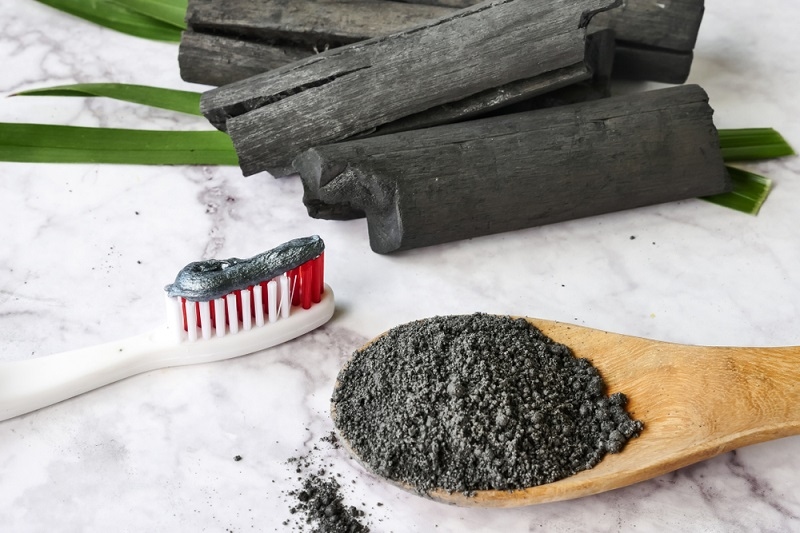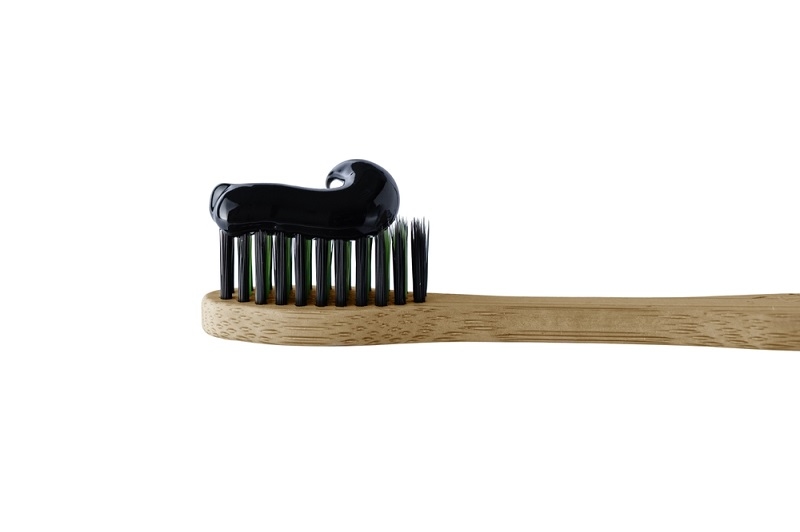
Charcoal toothpaste is the latest trend in dental care; millions of consumers have turned to this black paste in hopes of achieving whiter teeth. Advertised as a natural teeth whitener and detoxifier, charcoal toothpaste claims to remove stains and toxins by using activated charcoal. Proponents rave about its cleaning power and the beneficial effects of charcoal, while critics question the safety of charcoal and its potential to cause enamel damage. Black toothpaste has transitioned from specialty natural pharmacies to supermarket shelves in just a few years. But is this brightly colored fad truly effective—or just another marketing craze? Let's take a closer look at what's behind charcoal toothpaste's popularity, how it works, and whether it's really safe to use every day.
The secret ingredient in charcoal toothpaste is activated charcoal—a type of carbon that has been treated to expand its surface area and porosity. Its porous texture allows it to "entrap" particles via adsorption (not absorption). In toothpaste, activated charcoal can adhere to surface stains caused by coffee, tea, wine, or smoking, making the teeth appear whiter in that moment.
But here's the problem – charcoal whitening is only surface whitening. Activated charcoal does not chemically bleach the teeth, unlike whitening products that use peroxide. Instead, it is a mild abrasive and will scrub away external stains.
This can create a cleaner, brighter look, but doesn’t actually change the tooth’s internal color.
Dentists tend to agree that although charcoal's advantages include stain elimination and a cleaner mouthfeel, the gritty texture also wears away enamel if used excessively. Charcoal safety, therefore, relies on the product content and frequency of use.
Charcoal toothpaste enthusiasts often highlight several key advantages of charcoal, including its natural whitening properties and ability to remove toxins. Let's look at some of the most touted benefits:
Charcoal whitening is one of the most advertised benefits. Activated charcoal's porous surface absorbs stains, removing them from tooth enamel, giving a whiter smile without any chemicals.
Activated charcoal is known for its detoxifying methods; hospitals even use it to treat some types of poisoning. Concerning oral hygiene, it is claimed to draw out as well as remove bacteria and plaque from the mouth, leaving it cleaner and fresher.
Charcoal toothpaste can help fight bad breath naturally by trapping the compounds that cause odors, which may help reduce bad breath. After brushing, consumers often feel as though their mouth feels cleaner and healthier-tasting.
Most black toothpaste products eschew fluoride, synthetic chemicals, and artificial dyes, which attract customers seeking more natural personal care products.
However, while all these charcoal advantages may sound appealing, it's essential to consider them in light of scientific data and professional advice regarding charcoal safety.
Although charcoal toothpaste whitens naturally, dental experts have questioned the safety of charcoal and its long-term use. Here are a few things to consider before you start using this awesome black toothpaste.
Activated charcoal is abrasive. Scrubbing enthusiastically with bigger particles can erode enamel, making teeth sensitive and more susceptible to cavities. Once enamel is eroded, it cannot regrow. Be careful.
Many charcoal toothpaste products do not contain fluoride, which is essential to orange and prevent cavities. When you are not white, you are also leaving your teeth open to cavities.
Some customers report that brushing their teeth with black toothpaste causes their gums to become irritated or feel gritty. This can be led by the irregular size of the particles, or simply just brushing too much toothpaste over the gums.
Ironically, charcoal whitening toothpaste may leave grayish deposits on dental restorations or in gumline areas if not properly rinsed.
Although short-term use seems generally safe, long-term studies of charcoal toothpaste are limited. Dentists advise using it a few times weekly in conjunction with a fluoride-based paste for full care.

When charcoal toothpaste is compared to standard whitening toothpaste, it is apparent that the two play different roles. Let's examine it:
| Feature | Charcoal Toothpaste | Traditional Whitening Toothpaste |
| Main Ingredient | Activated Charcoal | Hydrogen Peroxide / Carbamide Peroxide |
| Whitening Mechanism | Physical stain removal | Chemical bleaching |
| Speed of Results | Gradual, surface-level | Faster, deeper whitening |
| Safety Level | Safe with moderate use | Safe when used as directed |
| Enamel Impact | May be abrasive | Mild if properly formulated |
Although charcoal whitening can lead to a boost in natural whiteness, products that contain peroxide can provide a deeper whiteness in the tooth structure. The best strategy is a combination of using charcoal toothpaste on a limited basis (1-2 times a week) and a fluoride-containing whitening paste daily, with very minimal risk.
At first glance, black toothpaste seems counterintuitive. After all, how can a toothpaste that is black make teeth white? However, its distinct color is part of what draws people in. The novelty of the product, the natural ingredient story, and the claim of visible results have given charcoal toothpaste a foothold in social media and dental care aisles.
From black-and-gold sleek packaging to influencer demos, black toothpaste is now the hallmark of modern, eco-friendly self-care. Aside from marketing, consumers must be informed of charcoal safety and realistic expectations of the whitening effects of charcoal.
To enjoy the benefits of charcoal while protecting enamel health, follow these important guidelines for safe brushing:
These simple and reasonable practices can address the aesthetics of charcoal whitening while maintaining long-term safety.
Charcoal toothpaste is in vogue; however, several myths surround its use.
Let's clear out a few:
Myth 1: Charcoal Toothpaste Will Permanently Whiten Your Teeth
This is false. Charcoal toothpaste only removes surface staining. Permanent whitening will require a bleaching agent.
Myth 2: Since it is "natural," it is 100% safe.
Not sure about that. Natural doesn’t always mean gentle. Abrasive activated charcoal can still damage enamel if used excessively.
Myth 3: All Charcoal Toothpastes Are the Same
Charcoal-containing products can differ in terms of particle size, concentration, and texture, and that can affect the safety and effectiveness of charcoal.
Myth 4: Charcoal Toothpaste Can Substitute for Toothpaste.
No. Charcoal toothpaste is not effective in preventing cavities or remineralizing enamel because it contains no fluoride.
New evidence presents conflicting opinions about the usefulness and safety of charcoal.
A 2019 article in the British Dental Journal highlights the lack of strong evidence for whitening with charcoal.
Beyond the whitening claims, a separate article in the Journal of Applied Oral Science states that if used, activated charcoal can remove stains from surfaces but does create surface roughness to enamel.
Dentists still recommend using toothpaste with charcoal in moderation, as well as fluoride toothpaste to accompany charcoal.
Dentists agree that charcoal toothpaste should be viewed as an enhancement, meaning it does not replace either less invasive professional whitening or toothpaste with fluoride.
If you consider marshaling charcoal toothpaste in your oral hygiene regimen, below are some recommendations for formulation to consider that can reduce risk and enhance the performance of charcoal:
Choosing the best black toothpaste involves striking a balance between whitening strength and gentle care.
Generally safe for most consumers, avoid charcoal toothpaste if:
Keep in mind, the safety of charcoal varies with individual dental health and usage rates.
Charcoal toothpaste's popularity refuses to fade away. As companies perfect their formulations and research improves, we might be able to expect safer, more well-rounded alternatives incorporating activated charcoal with fluoride or remineralizing agents.
New products are rapidly entering the market, including charcoal whitening strips, rinses, and gels, offering consumers even greater options to introduce charcoal benefits into their routine. And as safety profiles for charcoal improve, these products may be instrumental in bridging the gap between natural care and clinical efficacy.
Is charcoal toothpaste more than clever marketing? The answer is somewhere in the middle of "yes" and "no." It is a great addition for occasional whitening and refreshing (in between teeth brushing), but it is not the ultimate solution for removing tooth discoloration.
Activated charcoal is effective, especially for removing light surface stains; it offers detoxifying benefits, and it will leave breath fresh, yet overusing it may risk more effectively eliminating charcoal safety profiles by eroding enamel. Black toothpaste can be a healthy part of an oral regimen, just not the sole component.
To get the best results, use charcoal toothpaste in moderation, complement it with fluoride toothpaste, and keep regular dental appointments. Used judiciously, this dark, detoxing fad can actually bring a bit of brightness to your smile, without dulling your enamel's health.
This content was created by AI